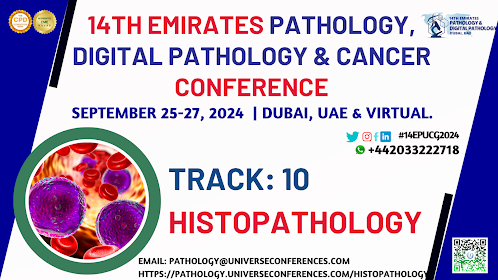Brain Tumors: A Comprehensive Guide
Brain tumors are among the most complex medical conditions, affecting both physical and mental health. Understanding brain tumors—what they are, how they develop, and the options for treatment—is crucial for patients, caregivers, and medical professionals. This guide provides a detailed overview of brain tumors, their types, symptoms, diagnostic methods, and treatment options.
What is a Brain Tumor?
A brain tumor
is an abnormal growth of cells within the brain or central spinal canal. These
cells grow uncontrollably, forming a mass that can disrupt normal brain
function. Brain tumors can be classified as benign (non-cancerous) or malignant
(cancerous). Malignant tumors are more dangerous because they grow aggressively
and can spread to other parts of the brain or body.
Types of
Brain Tumors
Primary Brain
Tumors
Primary brain
tumors originate in the brain itself. They include:
·
Gliomas: These arise from glial cells, which support nerve cells. Types
of gliomas include:
- Astrocytomas:
Commonly found in the cerebrum, they range from low-grade (slow-growing)
to high-grade (fast-growing).
- Oligodendrogliomas:
Develop in the cells that produce the protective covering of nerves.
- Ependymomas:
Typically form in the lining of the ventricles or central canal of the
spinal cord.
·
Meningiomas: These tumors develop from the meninges, the membranes covering
the brain and spinal cord. Most meningiomas are benign and slow-growing.
·
Medulloblastomas: Most common in children, these malignant tumors originate in the
cerebellum.
·
Pituitary Adenomas: These benign tumors occur in the pituitary gland and can affect
hormone levels, leading to various symptoms.
Secondary
(Metastatic) Brain Tumors
Secondary
brain tumors result from cancer cells spreading to the brain from other parts
of the body. They are more common than primary brain tumors and often originate
from cancers of the lung, breast, kidney, or skin (melanoma).
Symptoms of
Brain Tumors
The symptoms
of a brain tumor vary based on the tumor's size, location, and growth rate.
Common symptoms include:
- Headaches:
Often more severe in the morning and may worsen with activity or changes
in body position.
- Seizures: New
onset of seizures, especially in someone without a history of epilepsy,
can be a sign of a brain tumor.
- Cognitive
or Personality Changes: Memory problems, confusion,
difficulty concentrating, and changes in behavior or personality.
- Motor or
Sensory Deficits: Weakness or numbness in the limbs,
difficulty with balance or coordination, and sensory changes such as
vision or hearing loss.
- Nausea
and Vomiting: Often due to increased pressure within
the skull.
- Fatigue:
Persistent tiredness not relieved by rest.
Diagnosing
Brain Tumors
Diagnosing a
brain tumor involves several steps:
- Neurological
Exam: A thorough examination to check for abnormalities in
vision, hearing, balance, coordination, strength, and reflexes.
- Imaging
Tests: MRI and CT scans provide detailed images of the brain and
help identify the presence, size, and location of the tumor.
- Biopsy: A
sample of the tumor tissue is taken and examined under a microscope to
determine the type of tumor and its grade.
- Molecular
Testing: Genetic and molecular tests can provide
information about the tumor's characteristics and help guide treatment.
Treatment
Options
Treatment for
brain tumors depends on the type, size, location, and grade of the tumor, as
well as the patient’s overall health. Common treatment options include:
- Surgery: The
primary treatment for many brain tumors. Surgeons aim to remove as much of
the tumor as possible while preserving normal brain function.
- Radiation
Therapy: High-energy beams are used to kill
cancer cells and shrink tumors. It can be used alone or in combination
with surgery.
- Chemotherapy:
Drugs are used to kill cancer cells or stop their growth. Chemotherapy can
be administered orally, intravenously, or directly into the cerebrospinal
fluid.
- Targeted
Therapy: These drugs specifically target the
molecular changes that drive tumor growth, with fewer side effects than
traditional chemotherapy.
- Immunotherapy:
Treatments that help the body’s immune system recognize and attack cancer
cells.
- Clinical
Trials: Participation in research studies
testing new treatments can provide access to cutting-edge therapies.
Living with a
Brain Tumor
Living with a
brain tumor presents many challenges, both physically and emotionally. Support
from healthcare professionals, family, and support groups is crucial.
Rehabilitation services, including physical, occupational, and speech therapy,
can help patients regain function and improve quality of life.
Conclusion
Brain tumors
are complex and multifaceted, requiring a comprehensive approach to diagnosis
and treatment. Advances in medical technology and research continue to improve
the prognosis for many patients. Early detection and personalized treatment
plans are key to managing brain tumors effectively.
===========================
Conference
Name: 14th
Emirates Pathology, Digital Pathology & Cancer Conference
Short
Name: 14EPUCG2024
Dates:
December 17-19, 2024
Venue:
Holiday Inn Dubai, UAE & Online
Email: pathology@universeconferences.com
| Call Us: +1 (207) 707-7298
Visit: https://pathology.universeconferences.com/
Submit
here: https://pathology.universeconferences.com/submit-abstract/
Register
here: https://pathology.universeconferences.com/registration/
Online Registration here: https://pathology.universeconferences.com/virtual-registration/
WhatsApp
us at: https://wa.me/442033222718?text=
#BrainTumorSurvivor
#BrainTumorAwareness #TumorDiagnosis #CancerTreatment #LivingWithCancer
#CancerCare #BrainTumorSymptoms #FightCancer #PathologyTechnology #AIMedTech
#SmartPathology #AIinMedicine #DigitalHealth #AIAlgorithms
#MachineLearningInPathology #Telepathology #RemotePathology #DigitalPathology
#VirtualPathology #Telemedicine #PathologyConsultation #Telehealth
#TeleDiagnosis #Pathology #Pathologists #MedicalPathology #ClinicalPathology
#PathologyEducation #DiagnosticPathology #HealthTech #MedTech #DigitalHealth
#HealthInnovation #AIinHealthcare #MachineLearning #Healthcare #Medicine
#MedicalScience #HealthcareTechnology #PatientCare #HealthcareInnovation #MedEd
#MedStudent #PathologyResident #MedicalEducation #ContinuingEducation
#PathologyConference #MedicalConference #HealthcareConference #Networking
#DigitalPathology #AIinHealthcare #AIDiagnostics #PathologyAI #DigitalDiagnosis
#AIPathology #MedicalAI #HealthcareInnovation
#BrainTumors #BrainCancer #Glioma #Meningioma #Medulloblastoma
#PituitaryAdenoma #CancerAwareness #BrainHealth #Neurosurgery #RadiationTherapy
#Chemotherapy #TargetedTherapy #Immunotherapy #NeuroOncology #CancerResearch
#BrainTumorSupport



.png)
Comments
Post a Comment